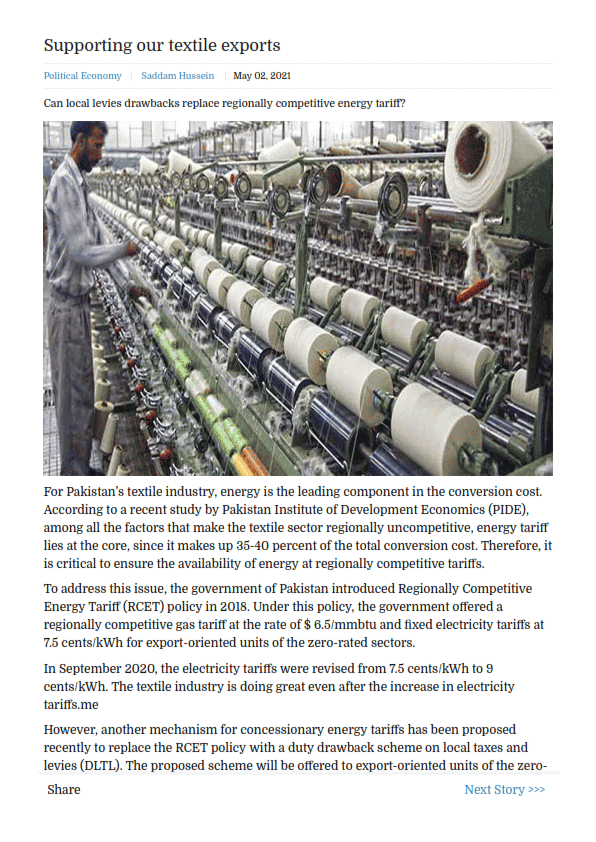
Pakistan Institute of Development Economics
- Home
Our Portals
MenuMenuMenuMenuMenuMenuMenu - ResearchMenuMenuMenuMenuMenuMenuMenu
- Discourse
- The PDR
- Our Researchers
- Academics
- Degree Verification
- Thesis Portal
- Our Portals

Supporting our textile exports
For Pakistan’s textile industry, energy is the leading component in the conversion cost. According to a recent study by Pakistan Institute of Development Economics (PIDE), among all the factors that make the textile sector regionally uncompetitive, energy tariff lies at the core, since it makes up 35-40 percent of the total conversion cost. Therefore, it is critical to ensure the availability of energy at regionally competitive tariffs. To address this issue, the government of Pakistan introduced Regionally Competitive Energy Tariff (RCET) policy in 2018. Under this policy, the government offered a regionally competitive gas tariff at the rate of $ 6.5/mmbtu and fixed electricity tariffs at 7.5 cents/kWh for export-oriented units of the zero-rated sectors. In September 2020, the electricity tariffs were revised from 7.5 cents/kWh to 9 cents/kWh. The textile industry is doing great even after the increase in electricity tariffs.me However, another mechanism for concessionary energy tariffs has been proposed recently to replace the RCET policy with a duty drawback scheme on local taxes and levies (DLTL). The proposed scheme will be offered to export-oriented units of the zero-rated sectors. Under this scheme, they will receive a refund against the energy tariffs paid during the production process after filing a refund claim at the export stage.
Download full PDF


